カテゴリー:未分類
Flag Power Rankings – 英会話・英語 アミック
In addition to maps, as a kid I was also a huge flag nerd. While I liked to look at atlases for the actual maps inside, my true favorite page was at the back of book where every single country’s flag was displayed neatly. I’m only halfway embarrassed to say that I once had a shirt of a similar design, that I used to collect miniature flags, and that a few years ago I even downloaded an app to help me try and memorize every single nation’s flag (I didn’t quite ever make it to 100%). At one point I probably even wanted to be a vexillologist (a person who studies flags) but I’m guessing there aren’t too many job opportunities in that field.
Anyway, after spending all this time looking at flags, I naturally developed some favorites. While it’d be impossible for me to choose a true top list, these five would definitely be in the mix:
Seychelles

While most African nations use some combination of red-green-yellow-black on their flags, Seychelles lets everyone know how different they are from mainland Africa by sporting this fabulously different banner.
Macedonia
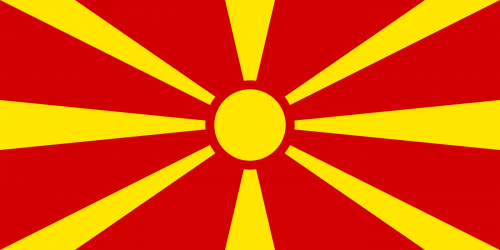
Macedonia’s flag looks like a permanent lens flare, or like you just unlocked some ancient gate or treasure chest that is opening for the first time in centuries.
Lebanon

I appreciate any flag that is probably extra fun for schoolchildren to draw (or that looks like it was designed in MS Paint).
Grenada
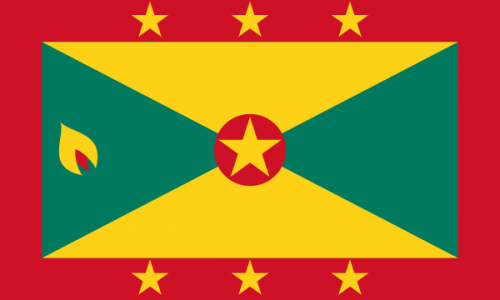
What looks like some sort of retro-futuristic basketball court design is actually the beautifully balanced flag of Grenada. To let everyone know how into spices they are, they even stuck in a clove of nutmeg on the left hand side.
Barbados

It’s a trident, just like Poseidon and Ariel’s father in “The Little Mermaid” have! Save for Kenya, I think it’s also the only flag with a weapon on it, so that’s pretty cool.
Anime & Manga
As a person that has been interested in Japanese culture since a young age, I of course have run across my fair share of manga and anime, superficially at least. But suddenly a couple months ago I started to watch anime and read manga and become much more interested in both. I’ve found a bunch of good stuff including classics like Death Note and some lesser known ones like Shiki. I really have become an otaku I guess. 😛
-Joe
Amazing Animals or Just Easily-Impressed Humans?
Yesterday, a class I teach started a new unit in their textbook entitled “Monkeys are Amazing!” I don’t think of monkeys as being necessarily amazing, so I asked my students if they agreed with the title. Most of them did, and threw in a few other animals that they think are amazing, like gorillas and giraffes. I guess all animals are amazing in their own way, but most animals don’t incite feelings of wonder or make me go, “Wow! How does this animal even exist?? It’s sooooo amazing!!”
Regardless of how I feel about gorillas or giraffes, here are some animals that I do think are amazing. Funnily enough, the first two aren’t land animals at all.
The ocean is so deep that we can only theorize upon the creatures that live in the deepest and darkest depths. The first amazing animal is the giant squid (not to be confused with the colossal squid, which is also incredible). These beasts can grow up to 10 meters including their long tentacles and their eyes are thought to be some of the largest in the animal kingdom. They live in oceans all over the world except for tropical or arctic waters. Their main predator is the sperm whale. These cephalopods are so elusive that before they were captured or filmed, scientists only knew they existed from examining the contents of whales’ stomachs and finding tentacles or beaks of giant squids.
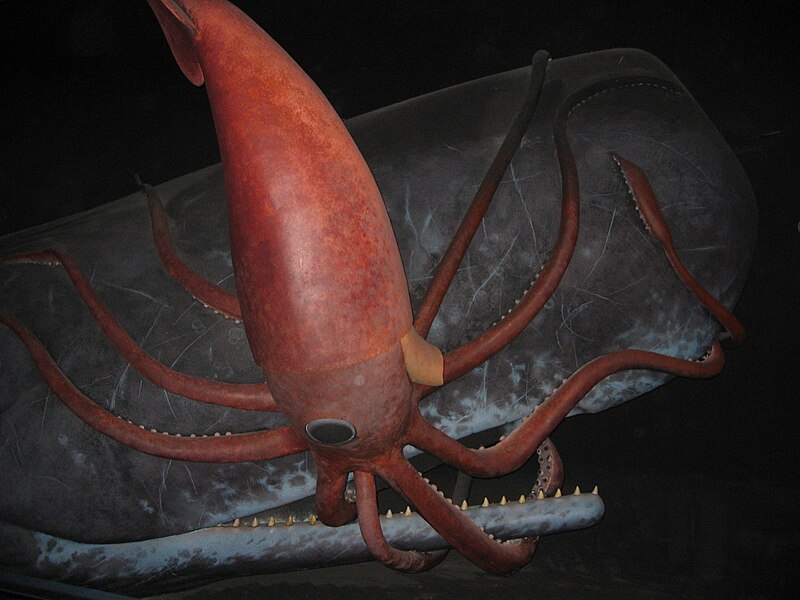
A dramatization of a sperm whale fighting with a giant squid.
The second amazing animal is the Greenland Shark which has the longest known lifespan of all vertebrate species: 300 to 500 years! It’s also one of the largest living species of sharks and grow up to 6.4 meters. Wow! They live in cold waters off of the eastern U.S. and western Europe, though they have been found at the depths of the Gulf of Mexico. It is also believed that they eat colossal squid because they live at the same depths.

A Greenland Shark just chillin’.
So, what do you think? Are these animals amazing to you, too?
植物の生命力
こんにちは、今日もアミックブログを訪れていただきありがとうございます!
猛暑日が続く中でも毎日頑張っているのは私たち人間だけではありません
小さくも懸命に生きている命にこんなところで出会いました
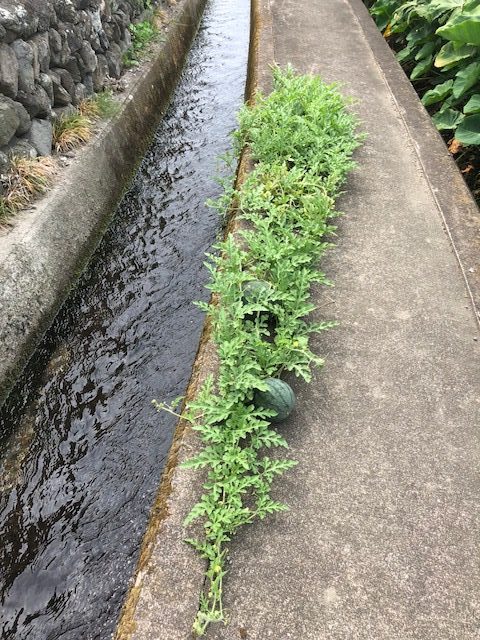
拡大してみます。。。
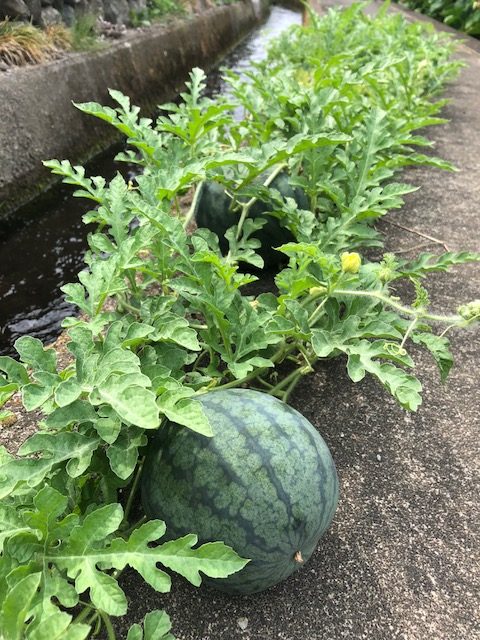
なんと、watermelon
畑に植えられているのではなく、コンクリートの農道
ひび割れた隙間に種が落ちたかなんかで、そこから育ってこんな立派な実をつけていました
どんな場所でも、最低限必要な土(コンクリートの下にあるのか)や水があればきちんと育つんですね
お散歩中にとてもほっこりさせてもらいました
ただ残る疑問は、あのスイカは誰のもの
見つけた順なら名前書いとこっかな〜
アミック英会話スクール
英会話・英語 アミック – Every time vs all the time
Every time vs all the time
Every time
We use every time when we are talking about each individual time something happens. We do not know how frequently this is, only that it happens each individual time.
- Every time I go to the beach, it rains.
- He’s very reliable. He’s there every time I need his help.
- It’s like magic! She guesses the correct card every time!
All the time
We use all the time to talk about something that always or usually happens.
- In the UK, it rains all the time.
- She’s late all the time. We have to talk to her manager.
- What’s their secret? They’re happy all the time!












